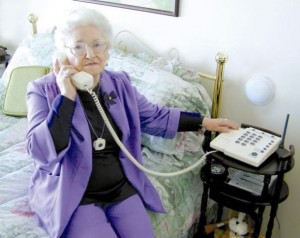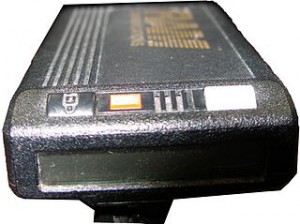June 19th, 2012 by Dr. Val Jones in Health Policy, Opinion
7 Comments »
 Along with the invention of smart phones, an entire medical mobile application (app) industry has cropped up, promising patients enhanced connectivity, health data collection, and overall care quality at lower costs. Last year the FDA put a damper on the app industry’s quick-profit hopes by announcing that it intends to regulate certain medical apps as medical devices. In other words, if the app is used to connect with a medical device or to turn a smart phone into such a device (whether it can check your blood sugar, blood pressure, heart rhythm, etc. or suggest diagnoses), it must undergo safety and efficacy checks by the FDA before it can be brought to market. That process is likely to inflate app development costs exponentially, thus creating a chilling effect on the industry.
Along with the invention of smart phones, an entire medical mobile application (app) industry has cropped up, promising patients enhanced connectivity, health data collection, and overall care quality at lower costs. Last year the FDA put a damper on the app industry’s quick-profit hopes by announcing that it intends to regulate certain medical apps as medical devices. In other words, if the app is used to connect with a medical device or to turn a smart phone into such a device (whether it can check your blood sugar, blood pressure, heart rhythm, etc. or suggest diagnoses), it must undergo safety and efficacy checks by the FDA before it can be brought to market. That process is likely to inflate app development costs exponentially, thus creating a chilling effect on the industry.
I actually think that FDA oversight is a good thing in this case, since it could protect patients from potentially misleading health information that they might use to make treatment or care decisions. But more importantly, I wonder if a lot of this fuss is moot for the largest, sickest, segment of the U.S. population?
For all the hype about robo-grannies, aging in place technologies, and how high tech solutions will reduce healthcare costs, the reality is that these hopes are unlikely to be achieved with the baby boomer generation. I believe that the generation that follows will be fully wired and interested in maximizing all that mobile health has to offer, but they’re not sick (yet) and they’re also not the proverbial “pig in the python” of today’s healthcare consumption.
I’m not saying that mobile health apps have no role in caring for America’s seniors – their physicians and care teams use tablets and smart phones, their kids do too, and a small percent of seniors may adopt these technologies, but I’m a realist when it comes to massive adoption by boomers themselves. Wireless connectivity, texting, personal digital health records, and asynchronous communication is just not in their DNA. Take away a teenager’s smart phone and he or she is likely to be completely flummoxed by reality. Now give that phone to a baby boomer and the flummoxing will be roughly equivalent, but centered upon the device. The teen can’t live without the constant phone/internet connection, and the senior is overwhelmed by the lack of human interface and unfamiliar menus.
What makes me so sure of my pronouncements? I just spent a month making house calls to almost 70 different Medicare Advantage members in rural parts of this country. And I can tell you that almost none of them used any sort of smart phone app to manage their health. These “odd creatures” actually enjoyed face-to-face human contact, they used their phones almost exclusively to talk to people (not surf the Internet), and they took hand-written notes when it was important for them to remember something. They even had paper calendars that they used to schedule their physician appointments and keep records of their medications and procedures. How “weird” is that?!
When I asked one of the seniors if she’d be interested in using a cell phone to check her blood pressure and have that automatically uploaded to her doctor’s office she replied,
“I’m too old to learn that stuff, dear. I’m lucky if I can find my slippers in the morning.”
The reality is that the average app user isn’t sick, and sick people don’t see a need for apps… yet. So our challenge is to meet seniors where they are instead of trying to change their habits. House calls are the best way I know of to get a full appreciation for individual quirks, compliance challenges, and health practices. If we are really serious about reducing healthcare costs in our aging population, it may take some low-tech solutions. As un-sexy as that may be, it’s time that we put down the iPhone and practiced some good old-fashioned medicine.
November 23rd, 2011 by Berci in Opinion
No Comments »

For the last 4 years, I’ve been teaching medical and public health students about the use of social media and generally digital technologies in medicine and healthcare and I got a good picture of what kind of medical professionals they would become soon. They represent the new generation of physicians.

Here are my points and observations:
- They are technophile. I remember the time when there was no internet, I remember the first website I first saw online. They were born into the technology and internet-based world. For them, websites, Facebook, Twitter and blogs represent the basics. They love gadgets and devices.
- They are fast. They use smartphones, read news online, follow blogs and know what RSS is, they are familiar with multi-tasking. They are much faster than the previous generations, therefore they need different tools and solutions in their work.
- But they use the technology for Read more »
*This blog post was originally published at ScienceRoll*
November 19th, 2011 by Bryan Vartabedian, M.D. in Opinion, True Stories
No Comments »

 It’s funny what we remember. As a 3rd year medical student rotating in surgery I remember quite clearly sitting in my attending’s office at Worcester Memorial Hospital. He was a vascular surgeon. I don’t remember his name. On this particular day I had followed him to his office after rounds. He had just received his new pager and placed a call to whomever had sent him the device.
It’s funny what we remember. As a 3rd year medical student rotating in surgery I remember quite clearly sitting in my attending’s office at Worcester Memorial Hospital. He was a vascular surgeon. I don’t remember his name. On this particular day I had followed him to his office after rounds. He had just received his new pager and placed a call to whomever had sent him the device.
It seemed there was a problem. The device lacked the latest pager feature: vibration. His current pager only beeped. The dialog centered around his on-call demands as a vascular surgeon and his love for the symphony. With a buzzing pager he Read more »
*This blog post was originally published at 33 Charts*
June 14th, 2011 by admin in News
No Comments »

 SHL Telemedicine has announced the release of SmartHeart, a lightweight and portable device that they claim can take “hospital-grade” ECGs by “anyone, anywhere, anytime.” The device connects wirelessly to smartphones and can transmit the ECG to a physician for a preliminary diagnosis. The possibilities for a device like this are endless – but so are the questions it raises.
SHL Telemedicine has announced the release of SmartHeart, a lightweight and portable device that they claim can take “hospital-grade” ECGs by “anyone, anywhere, anytime.” The device connects wirelessly to smartphones and can transmit the ECG to a physician for a preliminary diagnosis. The possibilities for a device like this are endless – but so are the questions it raises.
The device greatly streamlines the process of obtaining an ECG as it avoids the need to actually come in to a clinic and can be used to monitor high risk patients from their own homes. The smartphone can then transmit the ECG to an office or a hospital where health care professionals can examine them instantly. As cardiovascular disease is the leading cause of death in the US, a low-cost and easily used cardiovascular diagnostic device could have a huge impact on a sizeable part of the population. SmartHeart is set to cost $500, which is less than an iPhone itself.
However, a portable ECG device that anyone can supposedly use raises some major concerns. The first question is its practical application. For a patient to just have this at home implies that they are at high risk for cardiovascular events. Arrhythmias typically require continuous cardiac monitoring rather than a 10-second ECG, which this device does not appear to provide. So, is this device intended to Read more »
*This blog post was originally published at iMedicalApps*
April 29th, 2011 by Iltifat Husain, M.D. in Opinion
No Comments »

 Last month on match day, fourth year medical students from around the country — myself included — found out where we’ll be doing our residencies.
Last month on match day, fourth year medical students from around the country — myself included — found out where we’ll be doing our residencies.
I was extremely excited to find out I matched at my home institution, Wake Forest University School of Medicine, to do my Emergency Medicine residency, a program rich in EM culture and innovation.
Almost immediately after “The Match”, iMedicalApps received emails from fourth year medical students questioning what type of mobile device they should purchase for residency — almost all asking between an iPhone or Android.
We even found out some residency directors were already making suggestions for the incoming residents, choosing the iPhone. Below is an excerpt from one such e-mail:
If you are considering a change in mobile companies, please look carefully at an iphone. There are many apps that we will be using in the near future and it would be a significant benefit to have one.
After much debate between the editors at iMedicalApps, we have came to the conclusion that the choice of smartphone for not only a resident, but for physicians and others in healthcare has now become abundantly clear — the iPhone.
Here’s why. Read more »
*This blog post was originally published at iMedicalApps*
 Along with the invention of smart phones, an entire medical mobile application (app) industry has cropped up, promising patients enhanced connectivity, health data collection, and overall care quality at lower costs. Last year the FDA put a damper on the app industry’s quick-profit hopes by announcing that it intends to regulate certain medical apps as medical devices. In other words, if the app is used to connect with a medical device or to turn a smart phone into such a device (whether it can check your blood sugar, blood pressure, heart rhythm, etc. or suggest diagnoses), it must undergo safety and efficacy checks by the FDA before it can be brought to market. That process is likely to inflate app development costs exponentially, thus creating a chilling effect on the industry.
Along with the invention of smart phones, an entire medical mobile application (app) industry has cropped up, promising patients enhanced connectivity, health data collection, and overall care quality at lower costs. Last year the FDA put a damper on the app industry’s quick-profit hopes by announcing that it intends to regulate certain medical apps as medical devices. In other words, if the app is used to connect with a medical device or to turn a smart phone into such a device (whether it can check your blood sugar, blood pressure, heart rhythm, etc. or suggest diagnoses), it must undergo safety and efficacy checks by the FDA before it can be brought to market. That process is likely to inflate app development costs exponentially, thus creating a chilling effect on the industry.
















